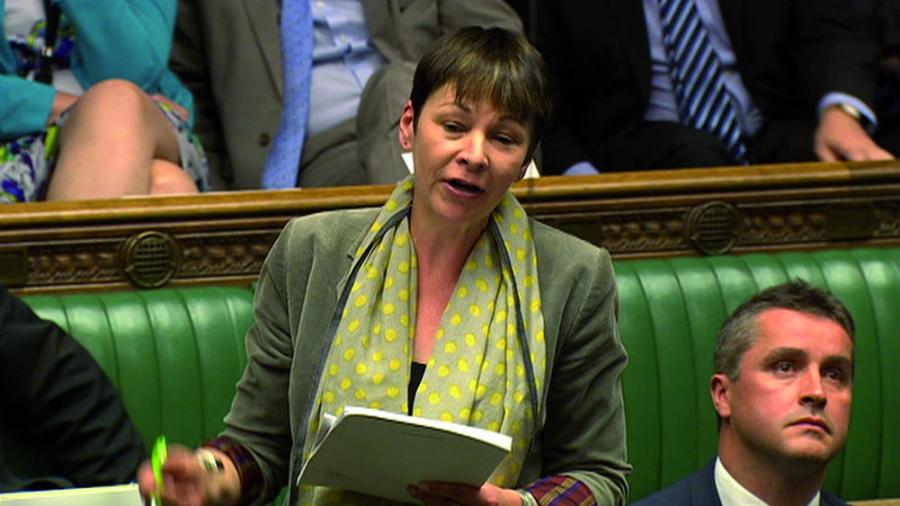It’s motherhood and apple pie, and the title of a new Bill debated yesterday in the House of Commons.
I’ve always argued the Government could be doing much more to support small businesses, create job opportunities and improve working conditions. This Bill therefore contains some welcome provisions.
For example, it introduces a new independent Pubs Code and Adjudicator, for which Brighton businesses and many residents have long campaigned. This will go some way towards securing more investment in our local pubs, fairer treatment of landlords and ultimately fewer pub closures.
But scratch beneath the surface of this Bill and you find far more to be worried about than to applaud.
Here are five of the major ways I think it needs improving:
- Protecting workers’ rights
The Bill is supposed to tackle abuse of zero-hours contracts and clamp down on employers who fail to pay the national minimum wage.
Millions of workers are trapped in poorly paid, highly insecure jobs.
Many people in work struggle to make ends meet due to low wages or insufficient hours. Oxfam’s recent ‘Breadline Britain’ report showed a 54% increase in use of food banks.
So it’s worrying that the Government’s proposals are riddled with exemptions, loopholes and a lack of sanctions or enforcement mechanisms.
I am opposed to zero hour contracts and have long campaigned for people to be paid properly. We need a living wage, not just the minimum wage.
- Helping small businesses through procurement
The Bill will give Ministers new powers to centralise procurement rules. That could create problems for small businesses, social enterprises and charities who want to provide goods and services within their local areas.
- Ditching deregulation
Ministers continue to pedal the myth that regulation is bad for business, ignoring the evidence of benefits even when presented by the corporate sector. As a letter to the Chancellor from business leaders in 2012 set out, environmental regulations do not have to be a burden on business. "Quite the reverse, well designed, smart regulation can reduce business costs and drive innovation and growth," the letter stated. [1]
Yet this Bill wants future governments to set a deregulation “business impact” target for each Parliament and to report annually.
There’s no evidence that UK businesses are “excessively” or “unnecessarily” burdened by costs associated with existing regulations and no evidence that we need targets of the kind proposed.
Minister are also ignoring the enormous benefits of smart regulation – to our society, our environment and – crucially - to the economy.
I am calling for this section of the Bill to be scrapped in its entirety.
- Ending export finance for projects that undermine human rights and the environment
The Bill contains provisions to help UK firms grow their exports, which is welcome news for many companies.
But it could also allow taxpayers’ money being used to underwrite arms sales to repressive regimes and fund dirty energy projects overseas.
The Coalition Agreement contained a commitment to “ensure that UK Trade and Investment and the Export Credits Guarantee Department become champions for British companies that develop and export innovative green technologies around the world, instead of supporting investment in dirty fossil-fuel energy production.”
I think the Bill needs amending to include a “prohibitions” list, ruling out funding for projects that undermine human rights and environment protection overseas.
- Stopping secretive company ownership
Only 9% of the British public believe that company ownership should be allowed to be kept secret.
This Bill is an opportunity for the UK to lead the way globally when it comes to company ownership transparency. This has lots of benefits, including helping to prevent people hiding criminal activities behind shell companies.
Secret ownership structures are also at the heart of tax dodging, money laundering, corruption and even terrorist financing. It’s been estimated that, due to tax havens, developing countries may lose $120-$160 billion annually in tax revenue – greater than the entire global aid budget.
But the proposals lack bite. There’s nothing to ensure data is kept up to date and accurate; the sanctions for non-compliance are not serious enough to make a difference; and exemptions need to be kept to an absolute minimum.
The Bill is back in Parliament later this year and do post comments below if you have anything you’d like me to raise in the debate.




Join The Discussion